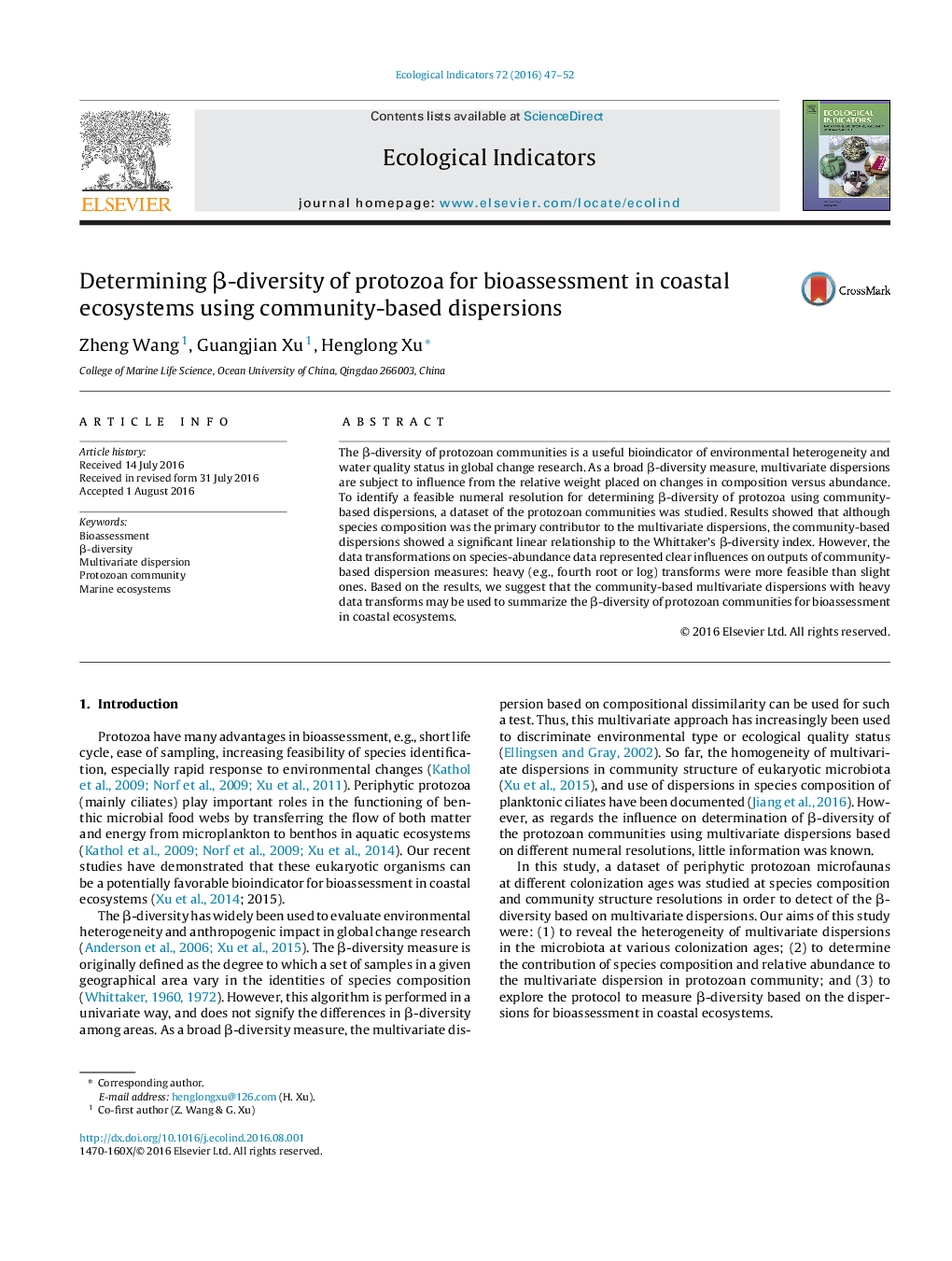| Article ID | Journal | Published Year | Pages | File Type |
|---|---|---|---|---|
| 6292713 | Ecological Indicators | 2017 | 6 Pages |
Abstract
The β-diversity of protozoan communities is a useful bioindicator of environmental heterogeneity and water quality status in global change research. As a broad β-diversity measure, multivariate dispersions are subject to influence from the relative weight placed on changes in composition versus abundance. To identify a feasible numeral resolution for determining β-diversity of protozoa using community-based dispersions, a dataset of the protozoan communities was studied. Results showed that although species composition was the primary contributor to the multivariate dispersions, the community-based dispersions showed a significant linear relationship to the Whittaker's β-diversity index. However, the data transformations on species-abundance data represented clear influences on outputs of community-based dispersion measures: heavy (e.g., fourth root or log) transforms were more feasible than slight ones. Based on the results, we suggest that the community-based multivariate dispersions with heavy data transforms may be used to summarize the β-diversity of protozoan communities for bioassessment in coastal ecosystems.
Related Topics
Life Sciences
Agricultural and Biological Sciences
Ecology, Evolution, Behavior and Systematics
Authors
Zheng Wang, Guangjian Xu, Henglong Xu,
